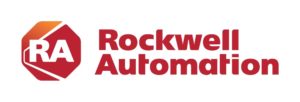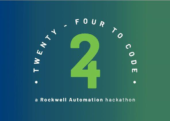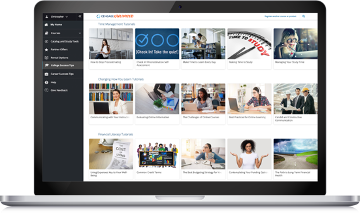Sponsored by Alkermes, Inc.
The COVID-19 pandemic has impacted almost every aspect of our lives and the way the world operates, including the higher education system.1 Campuses closed, classes moved online, vacations postponed, and carefully cultivated student support networks disabled by distance. 1,2 Our typical routines have changed completely—and all within just a few weeks.
The COVID-19 pandemic has created a new environment with unexpected and unprecedented obstacles that may pose new mental health challenges for students.1,3 Under normal circumstances, the transition to college and the college years can be difficult with many changes, including newfound freedom and unexpected pressures. Mental health challenges among the collegiate population are common and, in many cases, increasing.4 College-age students are often exposed to circumstances that can place them at risk for serious mental illnesses.5 These mental illnesses usually first appear in a young adult’s early 20s,6,7 often coinciding with the college years, and by their mid-20s, 75% of those who will have a mental health disorder in their life have experienced their first onset.8
As we continue to navigate new challenges during this time, students and families should be aware of the impact on a person’s mental health. What can be done to differentiate between expected stressors or mental health challenges as the result of the pandemic and what could be signs that a more serious mental illness is developing?
Here are a few things to consider:
• Consider taking a mental health screener. Online screening is one way to determine if you may be experiencing symptoms of a mental healthcondition.9Screeners are anonymous, free and easily accessible online.10 Mental Health America (MHA), a national mental health advocacy organization, saw an increase in screening between January 2020 and May 2020. This increase represents thousands of people whose lives and health may have been affected by mental health concerns at the onset of the COVID-19 crisis.11 Other organizations offering mental health screeners include MHA, MindWise and PsyCom.
• Access digital educational support resources. An entire community of mental health professionals, advocates and individuals living with mental illness are available to help. Treatment locators, which help people find local treatment programs and facilities, can offer guidance on how to access support in your own community. Educational guides and resources are available online from several organizations, including MHA, the Substance Abuse and Mental Health Services Administration (SAMHSA) or the National Alliance on Mental Illness (NAMI).12MHA has resources for Mental Health Month 2020 that families and those living with SMI may find useful during this time.
• Consider telehealth services, such as tele-counseling. While many of these services have existed for some time, the COVID-19 pandemic prompted many healthcare providers, including psychiatrists, to transition to using more tele-psychiatry and tele-counseling services and platforms to continue consistent health care delivery for patients while following social distancing and other quarantine guidelines.13 There are many telehealth resources available for students and their families that can offer support.14 A recent study suggests that some patients may be willing to engage with tele-counseling. These results suggest that patients studied reported similar levels of satisfaction for both telemedicine encounters and in-person interactions and that those who engaged in telemedicine interactions appreciated their clinician-patient relationship experiences and overall user experience.15 The move to more virtual interactions may extend beyond the pandemic. Ask your doctor or school counselors how to best take advantage of these resources now and in the future.
• Together with your HCP, research your treatment options. Online support groups and healthcare providers can help guide decisions on the treatment options that may be the best fit for your health, condition and lifestyle.16 There are many different types of medications for mental illness, including pills or capsules, taken daily. Some can also be available as liquids, injections, patches or dissolvable tablets.17Each person and diagnosis is unique and will likely require an individualized care plan. Always speak with your healthcare provider to better understand all available options and work with them to choose the option that is best for your specific needs.18
• Consider an online group. Online mental health support groups can also help. Others’ perspectives can offer a sense of comfort and self-empowerment as you navigate a diagnosis and the treatment landscape. Groups can encourage empathy, productive discussions, and a sense of community, all within a confidential setting.19,20 Programs can also direct members to additional tools and resources that may be helpful.
Remember, you are not alone. Don’t be afraid to seek more information or support as you navigate this challenging time. As our entire world adapts to the many changes brought on by the global pandemic, it is important to actively monitor your mental health and wellness. Support is available.
This is intended as informational only and not a substitute for professional medical advice, diagnosis or treatment. Always seek the advice of your physician or other qualified health provider with any questions you may have regarding a medical or mental health condition.
References
1 Anderson, G. (Mar 31, 2020) Coping With a Pandemic. [online] Available at: https://www.insidehighered.com/news/2020/03/31/mental-health-support-systems-coping-pandemic
2 Lipson, S. (2020). COVID-19’s mental health effects by age group: Children, college students, working-age adults and older adults. Healio. [online] Available at: https://www.healio.com/psychiatry/practice-management/news/online/%7B250e2c9c-e510-4109-bb84-024660539c08%7D/covid-19s-mental-health-effects-by-age-group-children-college-students-working-age-adults-and-older-adults
3 ActiveMinds.org (2020). The Impact of COVID-19 on Student Mental Health. [online] Available at: https://www.activeminds.org/wp-content/uploads/2020/04/Student-Survey-Infographic.pdf
4 Pedrelli P, Nyer M, Yeung A, Zulauf C, Wilens T. College Students: Mental Health Problems and Treatment Considerations. Acad Psychiatry. 2015;39(5):503–511. doi:10.1007/s40596-014-0205-9
5 Blanco C, Okuda M, Wright C, Hasin DS, Grant BF, Liu SM, Olfson M. Mental health of college students and their non-college-attending peers: results from the National Epidemiologic Study on Alcohol and Related Conditions. Arch Gen Psychiatry. 2008 Dec;65(12):1429-37. doi: 10.1001/archpsyc.65.12.1429.
6 Gogtay N, Vyas NS, Testa R, Wood SJ, Pantelis C. Age of onset of schizophrenia: perspectives from structural neuroimaging studies. Schizophr Bull. 2011;37(3):504–513. doi:10.1093/schbul/sbr030
7 American College Health Association. American College Health Association-National College Health Assessment II: Reference Group. Executive Summary Spring 2018. Silver Spring, MD: American College. Health Association; 2018.
8 Kessler RC, Amminger GP, Aguilar-Gaxiola S, Alonso J, Lee S, Ustün TB. Age of onset of mental disorders: a review of recent literature. Curr Opin Psychiatry. 2007;20(4):359–364. doi:10.1097/YCO.0b013e32816ebc8c
9 Mhanational.org (2020). Take A Mental Health Test. [online] Available at: https://screening.mhanational.org/screening-tools
10 Care for Your Mind (2013). How Can Mental Health Screening Help? [online] Available at: https://careforyourmind.org/how-can-mental-health-screening-help/
11 Mhanational.org (2020). Mental Health America Releases May 2020 Screening Data; 88,000 Have Anxiety Or Depression, And Results Point To Possible Epidemic Of Suicidal Ideation [online]. Available at: https://www.mhanational.org/mental-health-america-releases-may-2020-screening-data-88000-have-anxiety-or-depression-and-results
12 Nami.org. (2020). About Mental Illness. Treatments. [online] Available at: https://www.nami.org/About-Mental-Illness/Treatments
13Shore JH, Schneck CD, Mishkind MC. Telepsychiatry and the Coronavirus Disease 2019 Pandemic—Current and Future Outcomes of the Rapid Virtualization of Psychiatric Care. JAMA Psychiatry. Published online May 11, 2020. doi:10.1001/jamapsychiatry.2020.1643
14 Hilty DM, Sunderji N, Suo S, Chan S, McCarron RM. Telepsychiatry and other technologies for integrated care: evidence base, best practice models and competencies. Int Rev Psychiatry. 2018;30(6):292‐309. doi:10.1080/09540261.2019.1571483
15Elliot T, Tong I, Sheridan A, Lown B. Beyond Convenience: Patients’ Perceptions of Physician Interactional Skills and Compassion via Telemedicine. Mayo Clin Proc Inn Qual Out. Published online June 2020. doi: https://doi.org/10.1016/j.mayocpiqo.2020.04.009
16 Mhanational.org. (2020). Mental Health Treatments. [online]. Available at: https://www.mhanational.org/mental-health-treatments
17 Nami.org. (2020) Mental Health Medications. [online] Available at: https://www.nami.org/About-Mental-Illness/Treatments/Mental-Health-Medications
18 Nami.org. (2020). Mental Health Treatments. [online] Available at: https://www.nami.org/learn-more/treatment
19 Mhanational.org. (2020). Find Support Groups. [online] Available at: https://www.mhanational.org/find-support-groups
20 Nami.org. (2020). Support & Education: NAMI Connection. [online] Available at: https://www.nami.org/Support-Education/Support-Groups/NAMI-Connection
ALKERMES® is a registered trademark of Alkermes, Inc. ©2020 Alkermes, Inc. All rights reserved. UNB-003068
Media Contact
Hope Buckner
Finn Partners
615-610-0312
hope.buckner@finnpartners.com










